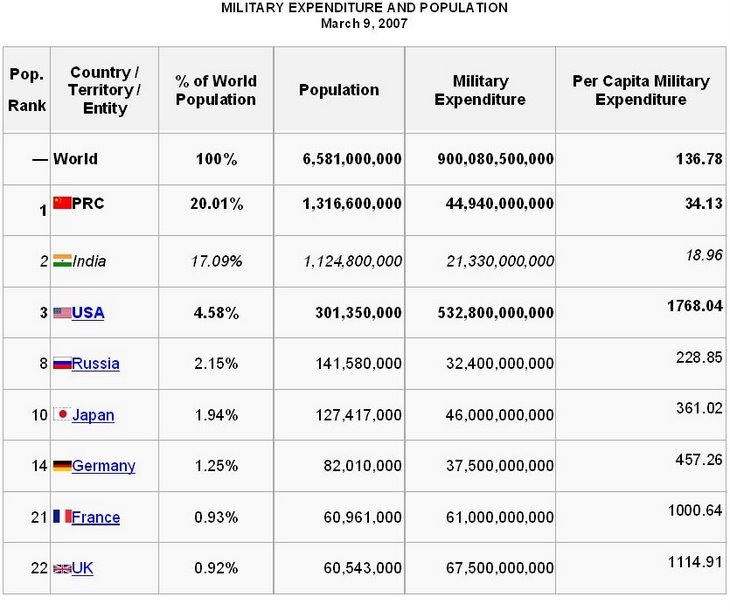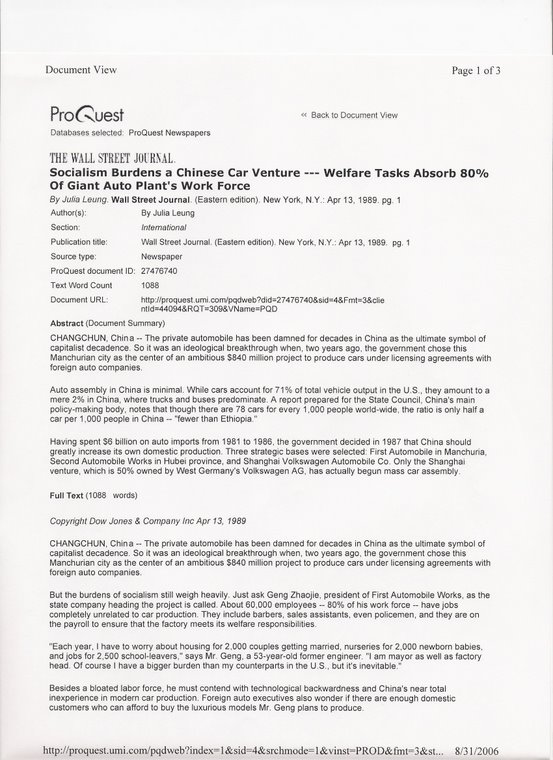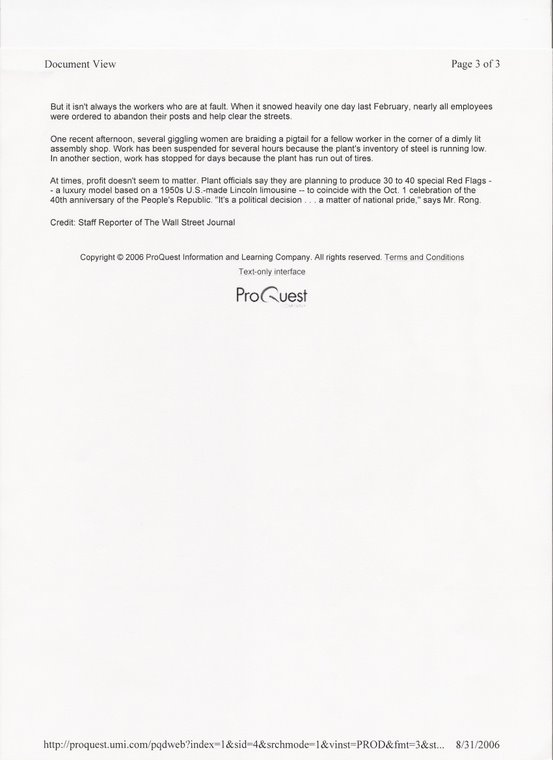February 19, 2007
In the past few weeks there have appeared a number of articles in the general press characterizing China’s relations with Africa as “neo-colonialism.” Since the West, over centuries, has done nothing but exploit, colonize and then be pushed out of Africa, culturally they have been inured to considering a close relationship with African states as “colonial.” That situation began to change with the establishment of the United Nations and the freedom of colonial possessions. This was followed by an association of former colonialist countries at a conference over fifty years ago in Bandung, organized by India and China, at which a general pledge was made to conduct foreign relations on the basis of non-interference in internal politics. This, of course, did not rule out economic aid, trade, and investment. Former colonial countries have maintained relations through economic controls and influence of politics. This, too, is coming to an end. Accelerating that process is the relationship between China and Africa.
One hundred years ago, W. E. B. DuBois predicted that the “world color line,” an expression of colonialism and imperialism, would be broken when Asia and Africa get together. Some thirty or forty years later, he specifically stated that China and Africa’s relationship would create a fundamental change in historic world relations. That is where we are today. Some six years ago, China organized the African Forum bringing together Heads of States to Beijing. In January 2004, China forgave the indebtedness of thirty-one African nations. It has annually brought together African leaders, culminating in last November’s China/Africa Forum which embraced forty-nine of the fifty-one African nation’s leaders in Beijing. China has been engaged in specific programs with African countries such as Angola, South Africa, Somalia, Sudan and other East African nations.
This is a super challenge to world imperialism which does little to assist economically and is simultaneously both engaged and confused in political relations. On the other hand, China does not get involved in political relations, yet is most friendly with all countries in mutually beneficial strategic contracts that deal with development of resources, health facilities, infrastructure, rebuilding of destroyed industrial equipment, modernization, etc. without political connotations on a purely win-win economic basis.
We are doing an in depth study of Sino-African relations. In this context, we have just received the February 8th issue of Beijing Review (English edition) which features, “China-Africa – Taking Relations to a New Level.” One of the main stories is a written interview with Eleih-Elle Etian, the Cameroon Ambassador who specifically deals with the mis-characterization of China’s relationship as neo-colonial. We attach relative sections of the article.
----------------------------
Beijing Review
Vol. 50 No. 6
February 8, 2007
Increasing Rapprochement
In a written interview with Beijing Review, Eleih-Elle Etian, Cameroon's Ambassador to China and dean of the Group of African Ambassadors, discusses China's burgeoning relations with Africa, especially with Cameroon, which was the first leg of Chinese President Hu Jintao's eight-nation Africa tour

China and Africa
Can you comment on "neocolonialism," a policy that some people believe China is pursuing in Africa?
First of all, I wonder whom those people are, those who believe China is pursuing a neocolonial policy in Africa. I'm afraid they are worried about the geopolitical incidence on the international scene of an increasing rapprochement between China and Africa. I'm also afraid they just want to distract Africans from a political option that will for once be to their advantage, just to prevent them from enjoying the bright prospects of that cooperation.
China was a close partner of Africa in the early years of the continent's struggle for independence-I mean in the de-colonization process of Africa. It would therefore be unfair to accuse or suspect China of embarking on a colonial or neocolonial policy in Africa. China is a responsible country and would not engage in a policy it has been fighting for decades. Ever since then, China and Africa have built their relations upon the five principles of peaceful coexistence, which include mutual respect for sovereignty and territorial integrity, mutual non-aggression, non-interference in each other's internal affairs, equality and mutual benefit, and peaceful coexistence. Both parties remain faithful to these principles and that is why we can witness such an increasing cooperation today.
Fortunately, neither China nor African countries are fooled by the saying of "neocolonialism." Counting on the usual support of all our traditional partners, we know our cooperation with China is one of the most strategic or simply the most strategic stake of the future of our international cooperation for the coming decades.
Increasing Rapprochement -- Beijing Review











